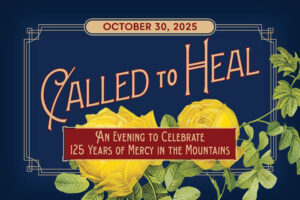Is it Allergies or Something Else?

May 12, 2021 by Keely Knopp
From the May 2021 Mercy Occupational Medicine eNewsletter
Spring is a great time to get outside and enjoy warmer temperatures. However, for many Americans, springtime goes hand in hand with coughing, sniffling, and sneezing. But in the time of COVID-19, how can you be sure if those symptoms are just regular seasonal allergies or a sign of a more serious condition?
Seasonal Allergies: An allergy is when the body’s immune system reacts to something that is usually harmless, like pollen or pet dander, and triggers the body to release chemicals called histamines. These histamines cause symptoms like sneezing, coughing, a runny nose, and watery eyes. Allergies can be controlled by eliminating the allergen or by taking OTC medications designed to control the body’s histamine response (like antihistamines) or, in more extreme cases, prescription medications and immunotherapy (allergy shots).
But allergies are not the only condition that can create these types of symptoms. Other potential causes of your springtime sniffles include:
The Common Cold: Symptoms of respiratory allergies and colds can look and feel very similar. Both can cause sneezing, a runny or stuffy nose, and tiredness or fatigue. However, unlike allergies, colds are caused by a virus and can be spread to other people. A cold likely won’t give you itchy eyes, but you may have aches, pains, or a fever. Aches, pains and fever are not typical of seasonal allergies. Colds usually last 3-10 days, whereas allergies can last an entire season or longer.
Flu: Like the common cold, Influenza is caused by a virus. Symptoms can also be similar, with a runny or stuffy nose, sore throat, and coughing. However, most people feel worse with the flu than with a cold. The flu typically comes on quickly, with chills, muscle aches, and extreme tiredness or fatigue. Flu can also cause a high fever that lasts for a several days or longer. People rarely report having these more serious symptoms with a cold, and they are almost never associated with allergies.
COVID-19: Both allergies and COVID-19 can cause you to lose your sense of smell and have a runny nose. Beyond that, though, there’s not much overlap of symptoms. Like colds and the flu, COVID-19 is caused by a virus and is more likely to feel like the flu, or like a cold with a fever and cough. With COVID-19, people may also have shortness of breath. Shortness of breath usually doesn’t happen with allergies, colds, or the flu. Keep in mind that some people with COVID-19 have no symptoms at all.
Sinus Infection: One clue to whether your symptoms are caused by allergies or a sinus infection is itchy eyes. A sinus infection rarely causes irritated, itchy, or watery eyes. Another symptom to watch for is thick mucus that is yellow or green in color. That is more likely a sign of a sinus infection than allergies. Other symptoms of a sinus infection may be fever, tooth pain, and even bad breath. A person would not have those symptoms with seasonal allergies.
In the age of COVID-19 it is understandable to have concerns over respiratory symptoms. However, in most cases, allergies are typically the culprit, especially as seasons change in spring and fall. Think back to previous years and how your body reacted during certain seasons. If you are feeling any of these symptoms in a more extreme measure, contact your doctor or healthcare provider to ask about other potential causes of symptoms.
Mercy Urgent Care can help answer questions and concerns about respiratory symptoms, whether related to seasonal allergies or something more serious. Go to mercyurgentcare.org to book a telemedicine visit or visit one of our eight clinics to see a provider who can help assess your symptoms.
Source: CDC.gov

